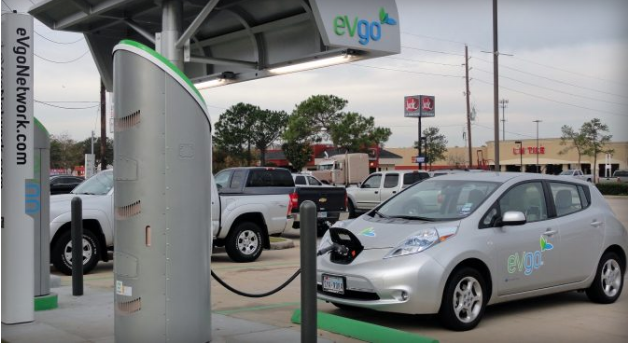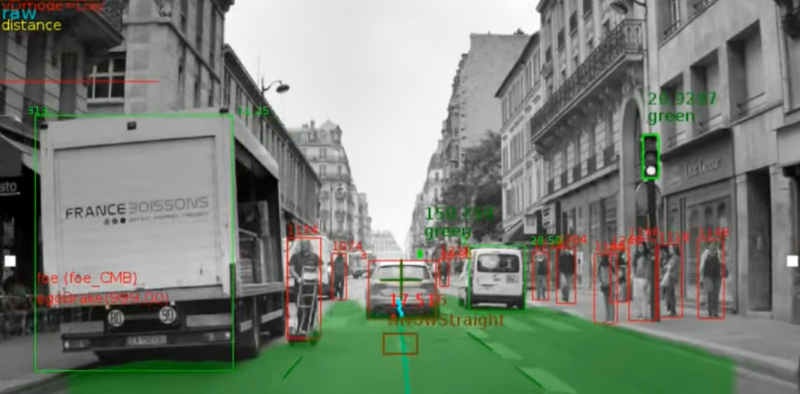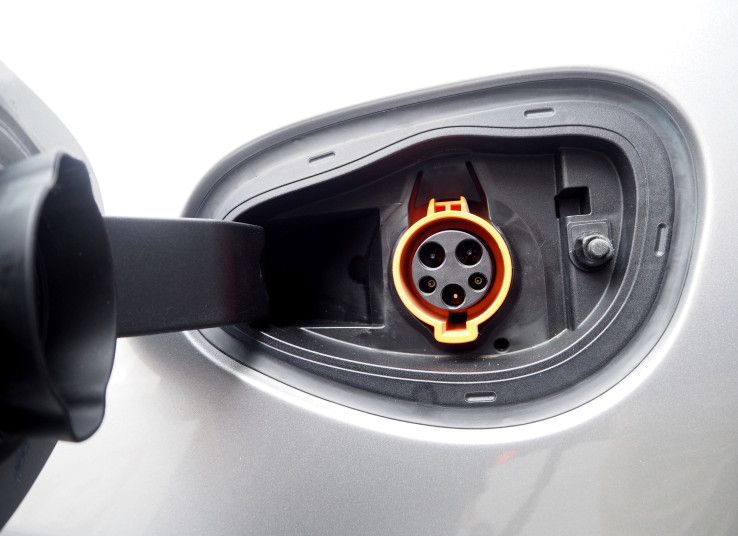New MIT study claims ‘range anxiety' fears about electric vehicles are overblown
【Summary】New MIT study claims ‘range anxiety’ fears about electric vehicles are overblown.

One of the most significant perceived issues around electric vehicles (EVs) is so-called "range anxiety" or the fear that the vehicle won't have enough stored power to handle daily driving. This fear is typically used to explain why EVs haven't caught on — according to this theory, drivers won't move to battery-powered vehicles in large numbers until said cars are capable of significantly greater range than they currently provide.
A new study from MIT argues that this is essentially an irrational fear, and that a large percentage of drivers could switch to a low-cost EV now with no need to modify their commutes or driving patterns. "What we found was that 87 percent of vehicles on the road could be replaced by a low-cost electric vehicle available today, even if there's no possibility to recharge during the day," said Jessika Trancik, a researcher with MIT's Institute for Data, Systems and Society who was the study's senior author.
The study analyzed driving patterns across multiple US cities and geographic areas and found that even in areas where per-capita gasoline use differed substantially, electric vehicles were still capable of meeting the vast majority of use cases.
Defining range anxiety
One problem with nailing down range anxiety, however, is that you have to understand the particular circumstances people face. A city dweller without an assigned parking space may have range anxiety related to not being able to reliably charge a vehicle overnight, as might apartment dwellers who don't have access to higher-speed charging options and can't install them without a landlord's consent.
Then there are drivers like myself. An EV could easily fit 99% of my driving needs, even if I had to charge it on a conventional 110V house plug. The problem is that last 1%. 2-3x per year, I take a 500+ mile trip to visit family. Flying is possible but extremely inconvenient if I don't rent a car, since my family lives several hours from O'Hare airport, while renting a car is extremely expensive compared with just driving in the first place.
The problem with driving an EV on a 500+ mile trip is that you're going to end up sitting for hours to charge the vehicle. It takes roughly 45 minutes to charge a Tesla Model S to 80% (according to this story, at least). If you own the Tesla AWD 90D with a 294-mile range (according to the EPA), it still means I'll be sitting for an extra 60-90 minutes to complete my trip — and that's over and above the 8-10 hours it can take already depending on traffic. In an affordable EV with a shorter range, like Tesla's upcoming Model 3, that recharge time gets even longer, since quick-charging a smaller battery to 80% means you'll have to charge it more often.
The problem with dismissing concerns about range as "range anxiety" is that it doesn't distinguish between irrational fear and rational issues about fueling time and travel distance. It's not just a question of having access to daily vehicular charging, it's also an issue that crops up whenever people take long trips — even if they take them relatively infrequently, and even if those trips only account for a small percentage of their yearly driving.
Until someone can field an EV that either holds 600+ miles of range, or can charge to a significant percentage of its total capacity within 5-10 minutes, an EV isn't going to be able to replace a gas-powered vehicle — not because I've got anything against battery powered cars, but because I'm not going to trade for a vehicle that takes an extra 45-90 minutes to make a trip that already eats most of a day. Issues like this will be a substantial drag on EV adoption until that 87% fulfillment rate hits 100%.
resource from: Extreme Tech
-


Elon Musk confident that Tesla can attain staggering 20-fold increase in production speed in Fremont
-


Tesla responds to Mobileye’s comments on Autopilot, confirms new in-house ‘Tesla Vision’ product
-


Uber will repay thousands of riders for misleading them about tips
-


Faraday Future adds top VW executive to bring to market its upcoming electric vehicles
-


Hyperloop track construction in California is delayed
-


Federal funds to back Portland storefront for electric-car marketing, pop-up roadshows
-


Tesla announces a partnership in South Korea for first store and 25 charging stations
-


DOE small biz voucher awards include vehicles and fuel cells
- GM to Invest $81 Million to Hand-Build Cadillac Celestiq in Michigan
- FCA to Pay $300 Million Fine for Emissions-Cheating Vehicles
- Acura Prevision EV Concept Previews Brand’s Electric Future
- Volvo’s Electric Vehicle Brand Polestar Reports $1 Billion in Revenue in the First Half of 2022, Adds 6 New Global Markets
- China's Tech Giant Baidu Plans to Rollout the World’s Largest Fully Autonomous Ride-Hailing Service by Next Year
- GM's Cruise Becomes First Company to Receive Permit to Charge for Autonomous Rides
- Intel’s Self-Driving Car Unit Mobileye Postpones its Planned U.S. IPO That Could Value the Company up to $50 Billion
- Tesla Rival NIO Inc is Hiring Manufacturing Specialists for a U.S. EV Factory, Reports Say
- The World’s Biggest Battery Producer CATL Signs MoU with EV Startup VinFast to Develop a ‘Skateboard’ Electric Vehicle Platform
- EV Startup Fisker Inc. Hires BMW Exec as Senior VP of Manufacturing, Aims to Build One Million EVs a Year by 2027











 About Us
About Us Contact Us
Contact Us Careers
Careers